Setting the Stage? Mexican Auto Employees Elect Independent Union
When the United States-Mexico-Canada Agreement (USMCA) was being floated as a possible replacement for the North American Free Trade Agreement (NAFTA), one of the biggest selling points was the inclusion of new labor protections for Mexican workers. The Trump administration wanted to ensure serious labor reform took place south of the border to ensure union business was conducted responsibly and wages would increase. As a byproduct, USMCA is supposed to encourage North American synergies while gradually discouraging U.S. businesses from blindly sending jobs to Mexico to capitalize on poverty tier wages.
That theory will now be tested in earnest after General Motors employees from the Silao full-size truck plant voted overwhelmingly to dump the Confederation of Mexican Workers (CTM) for the Independent Syndicate of National Workers (SINTTIA).
Drama at Volkswagen After CEO Suggests 30,000 Job Cuts
Volkswagen CEO Herbert Diess has been facing off with the company’s German workforce for weeks over the changing nature of the business. VW vowed to transition itself toward an all-electric lineup following the 2015 diesel emissions scandal. But the necessary steps to get there haven’t been universally appreciated.
The general assumption has always been that electric vehicles would result in massive layoffs across the industry by nature of their needing fewer parts than internal combustion vehicles. But Volkswagen seems worried that it’s falling behind smaller rivals and needs to take decisive action to make sure it’s not outdone by firms operating in the United States and China. The proposed solution is an industrial overhaul designed to fast-track VW’s electrification goals. Unfortunately, German labor unions are convinced that this plan would incorporate massive layoffs and have become disinclined to offer their support. The issue worsened in September when Diess told the supervisory board that a slower-than-desired transition to EVs could result in 30,000 fewer jobs.
Toyota, Stellantis Announce North American Battery Plants
Automakers Toyota and Stellantis separately announced plans to construct lithium-ion battery plants in North America on Monday. With regulatory pressures mounting, the industry has been shifting its eggs between baskets to avoid trouble. But the ultimate goal for most brands is to transition toward selling EVs, requiring meaningful action and financial expenditures on the part of manufacturers.
We’ve already seen General Motors and Ford Motor Co. squabbling over who will nestle the biggest battery facilities between America’s Frost and Sun Belts. It’s only fitting that the remnants of the Chrysler Corporation contained in Stellantis walk the path of electrification, especially now that it’s absolutely riddled with European influence. Meanwhile, Toyota is predictably exercising a bit of caution as it similarly navigates how to modernize itself via upcoming lithium-ion plants.
Dual Realities: VW CEO Claims Slow EV Shift Could Cost 30,000 Jobs
Like the rest of the world, the automotive industry is currently living in two distinct realities. Labor unions and part suppliers have been sounding the alarm that electric vehicles will require far fewer hands to manufacture and will ultimately lead to their demise. But battery firms, establishment politicians, and most automakers have claimed that transitioning to EVs is entirely necessary and will result in there being a surge of high-paying jobs to replace those lost.
Then there are claims you can’t quite wrap your head around, like the one Volkswagen CEO Herbert Diess reportedly made to the supervisory board in September. The Diess Man asserted that VW would lose 30,000 jobs if it transitioned too slowly to electrics, framing the situation around Tesla arriving in Germany and fresh competition from Chinese manufacturers. While it’s certainly possible that VW could take a hit as its rivals move on Europe, the premise that it’s going to cost the business jobs is sort of bewildering when just about every analyst agrees that electrification will result in a leaner workforce across the board.
Report: GM Needs More Manpower, UAW Suggests It Stop Drug Testing
Flint Truck Assembly is the only standing reminder of General Motors’ formerly impressive commitment to Genesee County, Michigan. Other representations include a myriad of crumbling factories that were closed decades ago and the area’s preponderance of vintage, high-mileage Buicks retained out of utility after the employment situation turned sour. Saying that the region has fallen upon hard times would be a grotesque understatement.
But that doesn’t mean there still aren’t still automotive jobs to be had. Despite GM reducing its Flint workforce from roughly 80,000 in the mid-1970s to fewer than 10,000 in 2010, the truck plant is still operational and reportedly looking for 450 temp workers to help fill in scheduling gaps for the 5,100 union-represented staffers it currently employs. Unfortunately, it’s been having trouble finding enough bodies, though the UAW has a solution. It believes that General Motors should stop drug testing, especially now that Michigan has legalized recreational marijuana use.
Auto Suppliers Just Realized EVs Will Cost Them Jobs
The Motor & Equipment Manufacturers Association (MEMA) has informed a Senate Commerce subcommittee on transportation that the Biden Administration’s penchant for electric vehicles is starting to get under its skin. The union is recommending that the United States avoid setting any timeline for the proposed banning of internal combustion vehicles because it might cost a staggering number of jobs.
Ann Wilson, MEMA’s senior vice president of government affairs, said vehicle restrictions were unrealistic before 2040 and would obliterate entire segments of the auto industry without providing concrete assurances that the environment would be improved. While the latter claim can be argued endlessly, the former is pretty difficult to refute.
2022 Hyundai Santa Cruz Reveals Itself
The 2022 Hyundai Santa Cruz has finally seen the light of day. It was about time, given all the fuzzy photos and hype prior to dropping today. More like a dull thud than a big bang, but here it is.
Supreme Court Allows Auto Aftermarket to Access APIs
The Supreme Court ruled on April 5th in the Google v. Oracle case, a copyright dispute over software. Their decision was that application program interfaces (API) are fair use in building compatible components.
Pandemic Changes Car Buying Plans, Or Has It?
The pandemic has changed car buying plans for nearly three out of four shoppers who intended to buy in the next six months. New research from Comscore Automotive Data Mart, cited in a story today by Auto Remarketing, indicated the pandemic tops the concerns of four out of ten who had intended to buy.
Stellantis Laying Off 150 Jeep Employees in Illinois
Jeep is laying off 150 workers that would have otherwise been employed at its Belvidere Assembly Plant, which actually produces the Jeep Cherokee instead of the long defunct, full-size Plymouth. Based on the timing, this decision appears to have something to do with the FCA-PSA Group merger that formed Stellantis.
Customized Jeeps From the Factory?
Customized Jeeps direct from the factory? That could be a possibility.
Fiat Chrysler Automobiles is building a $23 million vehicle customization facility with Jeep Wrangler and Gladiator production nearby at their Toledo Assembly Complex.
Ferrari CEO Abruptly Retires
Ferrari CEO Louis Camilleri has abruptly resigned from the company with the official announcement providing few details to build upon. Despite numerous news outlets fixating on his testing positive for COVID-19 and subsequent hospitalization, Ferrari failed to mention it in the release. But Reuters had reported that an inside source had claimed Camilleri, 65, had suffered health complications that required him to be hospitalized for weeks, adding that he was also stepping down as executive chairman of Philip Morris International.
However, he’s now said to be recovering at home and the coronavirus diagnosis apparently had nothing to do with his decision to retire. Ferrari only cited “personal reasons” and stated it had already begun considering his replacement, noting that it had no intention of rushing the process.
Automotive Retail Jobs Are In Rough Shape
Having already pulverized the dead horse of waning auto sales into a fine paste, we’ll now turn our focus on how it’s impacting employment among automotive retailers — squashing another pony.
Much of the information up until this point has been anecdotal and conditional to the North American response to COVID-19. Furloughs were rampant as the pandemic progressed and new safety rules seemed poised to cripple sales moving forward. There was an obvious general plight confronting automotive retailers, but we couldn’t nail down what that meant in terms of job losses.
We still don’t, frankly. But it is starting to become obvious that there isn’t much reason to be exceptionally optimistic. AutoNation recently announced that around half of the 7,000 workers it furloughed in April won’t be coming back. Despite some retailers claiming not to need such drastic cuts, plenty are following AutoNation’s model. With fewer customers and sweeping restrictions on how showrooms can be operated, there’s little reason for there to be all hands on deck. But just how many will be forced to abandon ship this year?
Ford Trimming 12,000 European Jobs Before 2021
Back in January, Ford provided the preliminary details for its European restructuring plan. The company had been losing money there for years and didn’t want it to be remain a liability as it dumped cash into autonomous research and electric vehicle development. With aims to achieve a 6-percent operating margin within the region, the automaker’s plan to tidy up the business was put into motion.
Thus far, Ford has ceased production at three plants in Russia, cut shifts in Germany and Span (rest in peace, C-Max), and has earmarked additional facilities in France and the United Kingdom for closure. By the end of next year, the automaker expects to have cut 12,000 jobs related to its European operations.
Chinese Auto Market Not As Hot As Everyone Thought
China might not be the kind of market everyone thought it was — one without a ceiling, boasting unlimited potential for growth. One by one, automakers find themselves having to confront economic reality.
Despite amassing a network of factories that could theoretically outproduce the rest of the world, the Asian country’s automotive sector only operates at about half its total capacity. That’s disconcerting. Even Europe, site of some serious industrial headwinds of its own, manages to operate around 70 percent capacity.
While the reasons for China’s woes are ludicrously complicated, one of the most pressing issues is that its economy is slowing much earlier than anticipated. Automakers, both foreign and domestic, almost universally believed that The People’s Republic would surpass the United States as the world’s largest automotive market — and they were right. But investments kept pouring in, factories were built, and the market started to cool prematurely. The situation only grew worse as incentives dried up and people began buying fewer cars; now, 2019 is shaping up to be a very bad year for the nation’s automotive sector.
Waymo Promises New Auto Jobs in Michigan
Alphabet’s self-driving arm, Waymo, announced plans for a Michigan expansion on Tuesday. The company is currently seeking a location in the southeast section of the state and intends to hire up to 400 employees over the next five years.
According to a corporate blog post, the new new hires will be tasked with installing autonomous driving systems on vehicles built by Fiat Chrysler Automobiles and Jaguar Land Rover ahead of those vehicles entering the firm’s growing fleet.
“We’ll be looking for engineers, operations experts, and fleet coordinators to join our team and help assemble and deploy our self-driving cars,” the blog explains. “This will be the world’s first factory [100-percent] dedicated to the mass production of [Level 4] autonomous vehicles.”
Tesla Slashes Workforce, Kills Referral Program in Ongoing Search for Cash
The automaker may have worked out production bugs and finally turned a profit late last year, but 2019 is off to a rocky start for Tesla. In an email to employees Friday, CEO Elon Musk said he’ll thin the company’s full-time ranks by 7 percent, warning of a “very difficult” road ahead.
The news comes hot on the heels of a slew of cost-cutting measures, including the elimination of various trim configurations and this month’s culling of 75D base models — a move that leaves only the top-flight 100D versions of the Model S and X in Tesla’s stable. Thursday brought word of the scrapping of company’s long-running customer referral program, prompting tears in the Tesla-boosting blogosphere.
All of this throws Musk’s promise of a true “people’s car” by this summer into doubt.
Blame China: Jaguar Land Rover Layoffs Won't Be Exclusive to Europe
On Thursday, Jaguar Land Rover was reported to be in the midst of a plan that would eventually lay off roughly 10 percent of its UK workforce — roughly 4,500 employees. Considering the company has been forced to endure waning demand for sedans and just about everything with a diesel engine, a bit of restructuring was inevitable. Especially since everyone else is doing it at the moment.
However, JLR’s layoffs won’t be exclusive to Europe, as initially presumed. Despite the vast majority of its workforce residing in the United Kingdom, a small portion of its American staff will likely feel the impact, too.
Here Come Ford's Layoffs: Automaker Outlines Its Euro Restructuring Plan
On Thursday, Ford announced preliminary details of a plan that will ultimately erase thousands of European jobs in an attempt to return the business to profitability. The decision comes after several reports indicated the automaker’s restructuring program will be particularly hard on the region.
The plan now officially includes a slimmer product lineup, which is likely to result in the shuttering of several facilities. The manufacturer also announced a “leveraging” of existing relationships — specifically referencing a potential alliance with Volkswagen Group that would help support Ford in that market.
“We are taking decisive action to transform the Ford business in Europe,” explained Steven Armstrong, group vice president and president of Europe, Middle East and Africa. “We will invest in the vehicles, services, segments and markets that best support a long-term sustainably profitable business, creating value for all our stakeholders and delivering emotive vehicles to our customers.”
What does Ford think it needs to do to achieve a 6 percent operating margin in Europe? Read on.
End of the Line: Bid to Save Oshawa Assembly Fails, Workers Walk Out
The faint hope that existed at the end of 2018 in regards to General Motors’ Oshawa, Ontario assembly plant no longer exists, except maybe in the minds of the most optimistic of union brass. On Tuesday, the automaker told Unifor, the union representing Detroit Three autoworkers in Canada, that its proposals to save the country’s oldest auto plant weren’t feasible.
GM laid out its reasoning in a letter to Unifor President Jerry Dias. As before, it all came down to cost … and the public’s dislike of cars.
General Motors Now Mexico's Top Automaker, UAW/Unifor Decidedly Annoyed
As General Motors takes aim at its own foot in the United States, it’s managed to become Mexico’s top automaker by volume. The company saw a nearly 3 percent U.S. decline in the fourth quarter of 2018, during which it announced the shuttering of several U.S. and Canadian facilities as part of a widespread restructuring program aimed at freeing capital for autonomous and electric vehicle development.
Meanwhile, large investments in its Mexican plants over the last few years — coming at the same time as rival Nissan’s scaling back of sedan production — has left GM as the top dog in the region. General Motors and Nissan have spent decades jousting for the top spot south of the border, alternating positions “depending on what has happened in their production levels,” according to Stephanie Brinley, principal analyst at IHS Markit.
Tata Motors: Seriously, We're Totally Not Interested in Dropping Jaguar Land Rover
It apparently needed to be said. As forces conspire against it, Indian auto conglomerate Tata Motors decided to pour cold water on rumors that it’s mulling a sell-off of Jaguar Land Rover, or perhaps some part of it.
Sure, there’s many troubles facing its British subsidiary, not least of which is the hazy future promised under Brexit. Then there’s cooling sales in the West and trouble in China — oh, and regulatory pressure in Europe and the continued decline of the traditional sedan. JLR lost a lot of money this year. Rumors abound of a big job cull in the New Year, too. Still, Tata says it has a plan, and that the plan will work.
Chevrolet Volt's Discontinuation Leaves Battery Plant Employees Out of a Job
The vehicle they provide batteries for has less than three months to live, and this week brought news to 50 workers at General Motors’ Brownstown Battery plant that their positions are even more short-lived. In a filing with the state of Michigan, GM said it will cut 37 hourly and 13 salaried workers at the Detroit-area facility, adding an extra dollop of job losses to the mass culling announced late last month.
If the idea of owning a plug-in hybrid with real electric range tickles your fancy, your time’s running out fast.
Union Set to 'Waste General Motors' in Canada
It’s been roughly a month since General Motors announced it would be shuttering Oshawa Assembly, leaving the facility’s nearly 3,000 employees and Canada’s auto union more than a little annoyed. Unifor leadership has said it intends to meet with GM executives on December 20th and discuss the automaker’s plans for the Oshawa facility in Detroit. However, the rhetoric coming from union head Jerry Dias makes the upcoming meeting sound more like a mafia hit than a labor negotiation.
“GM is leaving Canada, and we’re not going to let them,” Dias told reporters. “We are going to waste General Motors over the next year. Waste them.”
Ford's Car Cull Decision Spills Over to Michigan Workers [Updated]
The decision to ditch all passenger cars save for the Mustang didn’t lead to immediate pain among Ford’s American workforce, but it soon will. As the automaker’s restructuring plan has only just begun, Ford found itself spared from the kind of vitriol flung at rival General Motors, which recently outlined a workforce reduction of up to 15,000 employees.
But pain is coming — to Ford’s Van Dyke transmission plant in Sterling Heights, Michigan. Unlike the Midwestern workforce switcheroo that followed shift cuts at two plants last month, it doesn’t look like every worker will find a new home this time.
GM Starts the Formal Process of Cutting, Promises Jobs for Hourly Workers
It won’t be a joyous Christmas for many General Motors workers. As it embarks on a wide-ranging cost-cutting plan, GM plans to cull six models and mothball five plants in the U.S. and Canada, eliminating up to 15,000 jobs in the process.
On Friday, the automaker said the process of notifying federal agencies of its plans has begun. It also offered up a glimmer for nervous workers.
It Begins: Ford Restructuring Ends Production at Blanquefort Plant in France
As part of Ford’s massive restructuring plan, which is said to focus primarily on its European assets, the automaker will end assembly at its Blanquefort transmission plant in France next year. Its 850 employees will now have to find gainful employment elsewhere by August.
However, there was a brief glimmer of hope after transmission supplier Punch Powerglide (encouraged by the French government) launched a bid to purchase the facility and rescue it from being shuttered.
“Despite thorough and rigorous talks over the past nine months, and the best efforts of both sides, the plan put forward by the potential buyer presents significant risks,” Ford said in a statement. “We do not believe that the prospective buyer’s plans offer the level of security or protection, or limit the risk of possible future job losses, that we would like for the employees.”
'There Isn't Anything to Build': GM Canada Prez Opens Up About Oshawa Assembly Closure
Despite ongoing turmoil in the country’s oilpatch, with the government of Alberta paying to have white Dodge Durango R/T SUVs project a constantly updating tally of money lost due to discounted Canadian oil prices onto the sides of downtown Ottawa buildings, the big economic story north of the border remains General Motors.
After squashing rumors of a plant closure during the last round of union bargaining, the automaker announced late last month that the city of Oshawa, Ontario’s worst fears would indeed come true. Oshawa Assembly will close by the end of 2019, leaving some 2,500 GM workers out of a job.
It’s not the kind of situation a newly minted company president wants to preside over, but that’s the plate Travis Hester was handed from the bigwigs in the Renaissance Center.
Ford Cuts Factory Shifts, Comes Out Looking Like the Golden Child
Have you heard about that other American automaker — the one that doesn’t callously ruin lives? This question, no doubt percolating inside the craniums of U.S. lawmakers and pundits, doesn’t need to be spoken to be heard.
What would normally be a simple announcement of a production increase at one plant and a decrease at two others took on a symbolic nature this week. Ford wants to build more large SUVs but requires fewer cars. Thanks to a quirk of geography, no layoffs are planned — something that can’t be said of GM’s scorched earth plan, right?
GM to Shed Five North American Plants, Numerous Products, Amid Restructuring Drive
Heavy-duty streamlining has reached the production level at General Motors. After last night’s bombshell (though not unexpected) report claiming Canada’s oldest auto plant would cease operations late next year, more news is trickling out about the automaker’s production future.
Add Ohio and Michigan to the list of locales expected to lose an assembly plant.
White Collar, Pink Slip: There's Pain Coming to Ford's Workforce
Streamlining rarely comes without a reduction in personnel, and it appears Ford’s $11 billion restructuring plan will indeed bring about a loss of employees in North America. While the automaker previously hinted at steep job losses in its troubled European operation, a recent report shows employees need to be worried on several continents.
According to the Detroit Free Press, Ford’s plan will leave many unemployed white-collar, salaried workers in its wake.
Amid Cross-border Feud, a Pricier Dodge Challenger Looks More Likely Than Ever
Man, if you live south of the 49th parallel, you missed quite a hubbub yesterday evening. Actually, Americans likely caught a whiff of it, as U.S. President Donald Trump’s lengthy post-UN press conference Wednesday covered a lot of topics, including the one that had Canucks up in arms.
Up here in the Great White North, a country some commenters would prefer to never see mentioned (as this writer apparently mentions it ALL THE TIME), trade remains an understandably hot topic. Canada hasn’t reached a renegotiated free trade agreement with the U.S., unlike Mexico, and there’s a Sunday deadline looming to sign on to the U.S.-Mexico accord. Tick tock. Among other planks, Canada wants to protect its dairy cartel — an entity not universally loved up here, as it greatly increases the price of common food staples on store shelves. However, protecting jobs in that sector means risking jobs in the larger auto sector, a crucial industry whose vehicles Trump has threatened to tax to the tune of perhaps 25 percent. Auto parts could see a 10 percent tariff.
Canada exported $48.8 billion worth of vehicles in 2016.
Toyota, Honda, and the Detroit Three all have assembly plants in Ontario. Last night’s news conference brought nothing but worry to the nearly 200,000 people employed in the vehicle and parts manufacturing sector. What would it mean if Trump pulls the tariff trigger? And is Canada blameless in not yet reaching a deal?
Train Station 2.0: Ford's Corktown Redevelopment Plan Unveiled, Won't Replace Dearborn
All eyes were on the now Ford-owned Michigan Central Station in Detroit’s Corktown neighborhood on Tuesday morning, as the automaker formally announced its plan for the derelict building and surrounding neighborhood.
Ford Motor Company recently took the century-old structure, abandoned since 1988, off the hands of its longtime owners, the Moroun family. There’s still no dollar figure attached to that deal, but that’s not what Tuesday was about. Ford’s plan, ambitious and big on vision, breaks down as this: there’ll be 2,500 Ford workers employed in the Corktown neighborhood, tasked with developing autonomous vehicles and related tech. The towering train depot, once restored, will serve as the nerve center.
Joining those employees in Ford-owned buildings scattered around the site will be an equal number of employees working for partners and suppliers, or so Ford hopes. The automaker’s aiming for a miniaturized version of Silicon Valley clustered around Michigan Avenue.
Thanks for the Pink Slip, Elon!
This shouldn’t come as a shock to anyone who’s ever used Twitter — or engaged with hardcore Tesla fans. What’s good for the automaker is apparently also good for its employees, even if they’re among the roughly 3,000 workers laid off this week as the company seeks profitability through restructuring.
Some employees are saying it’s a good thing Tesla gave them the heave-ho.
Tesla's Workforce Haircut Takes 9 Percent Off the Top
Tesla CEO Elon Musk announced a restructuring of the ambitious but troubled automaker on Tuesday, laying out a plan that will see 9 percent of the company’s workforce laid off.
Calling the decision “difficult, but necessary,” Musk said the cuts will come almost exclusively from its salaried workforce, leaving production workers in place. The company’s production targets for the Model 3 sedan haven’t changed, he insists.
Ford's Plan to Buy Towering Detroit Pigeon Coop Isn't BS
There’s been much made about Ford’s secret/not-so-secret plan to purchase a major chunk of Detroit’s Corktown neighborhood, including its greatest landmark — the monstrous, long-abandoned Michigan Central Station. Until now, however, the only words we had to go on were whispered by sources who preferred to keep their names out of the media.
Thankfully, Edsel B. Ford II decided to pipe up today.
Ford Poised to Take Over Detroit's Corktown Neighborhood: Report
Officially, there’s more than 220 Ford Motor Company employees ready to move into a refurbished former factory on Michigan Avenue in Detroit’s Corktown district sometime this year. A nice little burst of employment for a long-neglected, now-resurgent neighborhood, but it might be just the beginning.
The automaker is reportedly in talks with numerous property owners to create a campus totalling at least 1.1 million square feet, with the towering — and famously abandoned — Michigan Central Station as its anchor.
GM Cuts Half of Lordstown Plant's Workforce as Chevrolet Cruze Sales Slide
General Motors summoned all 3,000 of its Lordstown Assembly employees to the Ohio plant this afternoon, and half left the meeting with an uncertain future.
The automaker said it plans to cut the second shift at the plant, just a year after GM scrapped the third shift in the face of declining compact car sales. Lordstown, which opened in 1966, builds only the Chevrolet Cruze.
GM Korea Threatens Bankruptcy If Union Doesn't Budge
South Korea’s powerful labor unions have the ability to make vehicle assembly a non-starter, and the country’s workers have been known to strike like it’s going out of style. Just ask Hyundai about that.
As it seeks to bring its operations in the country back from the brink, General Motors would prefer to see its workers’ union bend to its will, agree to the concessions demanded of it, and generally get out of the way. This isn’t happening, so GM’s now playing hardball.
Agree to our cost-cutting plan, the automaker says, or GM Korea declares bankruptcy.
Take the Cash, Hit the Bricks: Nearly 2,500 Korean Workers Opt for GM's Voluntary Redundancy Package
Union officials have stated that roughly 2,500 workers from General Motors’ South Korean unit have applied for a redundancy package offered as part of the automaker’s comprehensive restructuring of the region. The number represents around 15 percent of total GM staff in the area and should make negotiations with one of the most inflexible workers’ unions on the planet that much easier.
Still, what General Motors plans to do with its remaining South Korean factories is unknown, but it has already announced one closure. This has left many wondering if the automaker will abandon production in the country entirely. Fortunately, the Korean workforce has not responded with violence. In fact, many appear to see the writing on the wall, opting to take a buyout rather than cause a fuss during the restructuring.
The Cost of Saving GM Korea? $2.8 Billion, Report Claims
Amid frantic restructuring designed to keep General Motors’ money-losing Korean operations afloat, the automaker has proposed a $2.8 billion investment, a new report claims.
According to Reuters, a South Korean government official said GM would invest the funds over the span of 10 years, though not all of that money would come from the automaker’s coffers.
South Korean President Miffed Over GM Plant Closure, Fearful of the Future
South Korean President Moon Jae-in says General Motors’ decision to shut down its Gunsan plant will negatively impact the region. He’s hoping his administration can work some impressive mojo to boost economic activity in the area, but admitted that GM’s quick exodus could make that tricky. There are also concerns that the automaker may soon decide to close down its remaining three plants within the country, leaving 16,000 South Koreans without employment.
“Especially, the decline in employment [at GM] and subcontractors will be difficult to bear for Gunsan City and North Jeolla province,” Moon said in a statement released by his office.
However, things haven’t been going well for GM in the region. The company said it shuttered the plant after it became increasingly underutilized — running at about 20 percent of its total capacity over the last three years. Meanwhile, GM President Dan Ammann claims Korean labor costs have increased by over than 50 percent since 2010. Worker productivity is also abysmal. It takes roughly three hours longer to build a single car in GM’s Korean facilities than it does in the U.S., and Korean strikes are becoming commonplace.
GM Closes Korean Plant Amid Overseas Troubles; Chevrolet Orlando Dies With It
General Motors has announced plans to close one of its four South Korean assembly plants in an effort to stem a tsunami of red ink.
As it attempts to stabilize (or cut) unprofitable overseas operations — an effort that led to the sale of its European Opel and Vauxhall brands last year — GM will close its Gunsan, South Korea plant by the end of May. That facility, which employs 2,000 workers, builds the Chevrolet Cruze sedan and Orlando MPV, a boxy, three-row vehicle that almost made it to American soil.
Automakers Claim Robots Won't Steal Any More Jobs - For a While, Anyway
The car industry was one of the first to employ widespread automation as a way to streamline manufacturing. However, plenty of jobs have been handed over to robots since the 1980s. Cashiers, tollbooth operators, librarians, and practically everyone who has worked in shipping has seen some aspect of their job replaced with automation. But automakers now claim the usefulness of robots has reached its peak — at last for the time being.
In the midst of an autonomous revolution where drivers will be eventually be replaced by computer-controlled vehicles, numerous carmakers suggest robots still can’t substitute humans on the assembly line.
Joint Toyota-Mazda Assembly Plant Headed to Alabama: Report
It looks like Alabama has won out over North Carolina in the battle to secure a massive, $1.6 billion joint assembly plant. The factory, a partnership between Toyota and Mazda (which, as of last summer, Toyota owns a 5 percent stake in), is reportedly headed to Huntsville, Alabama, and should give the smaller automaker the American capacity it needs to boost crossover sales.
Sources tell Reuters that company officials and government representatives will make an announcement today at the future factory site. Not only does the new plant herald lots of new jobs, it also means a new model.
Nissan Mulls Extra U.S Manufacturing Capacity
Earlier this year, the big bosses at Nissan expressed their desire to grab a full 5 percent of pickup truck market share in the United States. However, chasing arbitrary targets has now fallen in favor of smart growth.
Still, lighting a fire under the brand seems to have worked, with Nissan moving nearly 1.5 million units in 2016, almost a million more annual sales than 15 years ago. With those numbers in mind, the company is acknowledging it’ll soon need a new assembly plant in America.
Real Fake News: Donald Trump and Where Japanese Manufacturers Choose to Build Their Cars
On Monday, President Donald Trump requested that Japanese automakers consider assembling their vehicles in the United States. “Try building your cars in the United States instead of shipping them over. That’s not too much to ask,” Trump told Japanese auto executives during this week’s visit. “Is it rude to ask?”
While the internet response was to immediately scoff at how little Trump knew about the industry (Japanese companies have been building automobiles in North America for decades), the reality was far more nuanced.
Taken in the broader context, Trump actually said, “Several Japanese automobile industry firms have been really doing a job. And we love it when you build cars — if you’re a Japanese firm, we love it — try building your cars in the United States instead of shipping them over. Is that possible to ask? That’s not rude. Is that rude? I don’t think so.”
Amid Production Headaches, Tesla Lays Off Hundreds: Report
Tesla employees jockeying for scarce parking spaces outside the company’s Fremont, California assembly plant and Palo Alto headquarters could soon find it easier to locate a spot.
The electric automaker reportedly laid off hundreds of workers this week — a move that comes at an particularly stressful time for the company and its employees. At just 260 units, third-quarter production of the long-awaited Model 3 sedan fell far short of predictions, with CEO Elon Musk blaming production bottlenecks for the slow trickle of highly sought-after vehicles.
Meanwhile, the exact nature of the fired employees is the subject of some debate.
GM Cuts Third Shift at Spring Hill Plant, but Not Because the Cadillac XT5 and GMC Acadia Are Tanking
Layoffs at an assembly plant producing recently redesigned midsize crossovers? Seems an unlikely scenario. But that’s what General Motors is doing in Spring Hill, Tennessee, where the automaker builds the Cadillac XT5 and GMC Acadia.
GM has announced it is cutting the plant’s third shift for an undetermined length of time starting in late November. The move comes just eight months after Spring Hill added hundreds of workers for that very same shift. While it might appear that demand for the vehicles is drying up, the numbers tell another story.
With Mercedes-Benz Going Electrified, How Does the Company Avoid Tanking?
Everyone’s doing it. It’s as popular as the fidget spinner and Pokémon Go crazes all those years months ago. In a rush to signal their environmental bonafides and display their dedication to the Next Big Thing, luxury automakers are tripping over themselves in an effort to promise an all-electrified model lineup as soon as technology and finances allow.
This time, it’s Mercedes-Benz. The world’s oldest car brand doesn’t want its rivals cashing in once governments around the globe start turning off the fossil fuel taps. So, earlier this week, Daimler CEO Dieter Zetsche stepped up and made a promise we’ve heard ad nauseum as of late: every model in the brand’s lineup will soon sport some form of electric propulsion, be it a hybrid setup or full-on battery electric powertrain.
For Mercedes-Benz, this means 50 hybrid or EV models, including at its irrelevant-to-Americans Smart brand. The move isn’t without a steep cost, however — Daimler is bracing for a slashing of vehicle profit margins. In some cases, the green collected from green cars could be half that of a gasoline Benz. What to do?
The Interstate Battle Royale for Mazda and Toyota's Super Factory
The funny thing about job creators is that they don’t always, you know, create any jobs. So, when a business lets slip that it might have 4,000 positions on offer in the near future, every state with an unemployment rate higher than zero takes notice.
Mazda and Toyota’s joint factory — codenamed Project Mitt — is one such example, and now over a dozen U.S. states are simultaneously competing for the opportunity to host the $1.6-billion factory and the thousands of direct and indirect jobs it will yield.
When the Japanese automakers publicly revealed their cooperative venture a couple of weeks ago, they made it clear they had not yet picked a site — sending economic development offices into a frenzy. But what locale will emerge victorious has a lot to do with what the region can offer the manufacturer, including potential tax incentives, tempting job training programs, and investments into infrastructure.
An affordable and abundant workforce is also desirable — an element that distinguishes many states from one another. But no single area has everything on offer, leaving the final decision of where to build up in the air.
VW Reduces Venerable Management Staff to Bleed the Young
Volkswagen Group is continuing to clean house and has made plans to eliminate a significant number of its management staff using the same “early retirement” tactics offered to its longstanding labor force. It’s another obvious attempt on VW’s part to remake itself into a younger, forward-thinking automaker following the diesel emissions scandal — and save itself some money in the process.
While the layoffs aren’t explicitly targeted at Germany, the majority of outgoing managers will certainly come from its European workforce. Volkswagen has declined to comment on the exact number of hangers-on potentially affected by the plan.
Temporary Shutdowns Insufficient; GM Eliminates Shift at Chevrolet Malibu's Kansas Assembly Plant
In September 2017, General Motors will be forced to lay off a large number of workers at its Kansas City, Kansas assembly plant where the Chevrolet Malibu is built.
Only two days ago we learned General Motors would stretch the Fairfax assembly plant’s summer shutdown by an additional three weeks — from two to five in 2017 — because of excessive Malibu inventory. But as GM seeks to maintain a more reasonable grip on incentives than in the past, the only remaining way of reducing an inventory glut is to stop building so many cars.
Unfortunately for some of GM’s Kansas employees, the announcement of a temporary shutdown — the third this year according to the Kansas City Business Journal — will be an insufficient means of reducing stock. The Kansas City Star reports the number of shifts at the plant will be reduced to two in late September.
After Chevrolet’s U.S. midsize sales rapidly elevated to a 36-year high in calendar year 2016 during the ninth-generation Malibu’s launch, volume has declined hard and fast in early 2017.
General Motors Extends Summer Plant Shutdowns, Layoffs Likely to Follow
If your current employment involves building a sedan for a domestic automaker, there’s both good and bad news awaiting you. General Motors is extending summer breaks at certain assembly plants and there may be an opportunity for some workers to extend that time off indefinitely, resulting in the least welcome vacations imaginable.
Stagnating sales and a bloated inventory is forcing GM to lengthen its traditional two-week summer shutdown to as many as five weeks for two U.S. factories, according to union officials. The affected plants are Lordstown Assembly, located in Ohio, and Kansas City’s Fairfax Assembly. Lordstown assembles the Chevrolet Cruze while Fairfax is responsible for the midsize Malibu, which has had a horrendous 2017. The Malibu had plenty of company in the doldrums, too. Through May, U.S. car sales were down 11 percent while truck and SUV sales rose by nearly 5 percent, forcing automakers to play favorites.
Ford Plans Salaried Position Cull in North America, Asia
A day after media reports described an impending mass layoff of Ford Motor Company employees, the automaker has clarified who gets to keep a job.
While the scale of the job reductions is less than previously reported — a 10-percent global workforce reduction is off the table — Ford does plan to cull its salaried North American and Asian workforce by one-tenth in a bid to cut costs.
The move comes after last week’s tense shareholders meeting during which investors and analysts grilled CEO Mark Fields over the company’s sinking market valuation. Since taking the helm three years ago, Fields has seen the company’s stock price sink by roughly 40 percent. Hourly workers aren’t affected by the plan, though the same can’t be said for white-collar employees.
Ford Likely to Eliminate 10 Percent of Global Workforce: Report
The Ford Motor Company is allegedly preparing for a sweeping reduction of its global workforce. Harder days for the auto industry have been a long time coming, but reports claim the impending layoffs are specifically related to shoring up finances and turning around the company’s lagging stock valuation — meaning Ford could be the canary in the coal mine or a lone company desperate to bolster its own profitability and get angry shareholders off its back.
While the automaker has not yet confirmed the cuts, there is every indication an announcement will be made soon. When confronted with the matter, representatives have been careful to make noncommittal statements and doubly cautious not to deny anything.
“We remain focused on the three strategic priorities that will create value and drive profitable growth, which include fortifying the profit pillars in our core business, transforming traditionally underperforming areas of our core business and investing aggressively, but prudently, in emerging opportunities,” Ford said in an official statement. “Reducing costs and becoming as lean and efficient as possible also remain part of that work. We have not announced any new people efficiency actions, nor do we comment on speculation.”
Keep Us In Business or We'll Blow Everything Up: French Supplier to Automakers
They do protests a little differently in France. A French supplier of brackets, bumper and steering column components to Renault and PSA Group might soon close down for good, so the shop’s unionized employees figured it would be best to turn its protest efforts up to “11.”
That apparently means destroying the equipment used to make those essential parts, as well as threatening lives by rigging the factory to explode.
So. Much. Passion.
Ford's Confirms Canadian Jobs While Everyone Else Speculates Over a New Truck Engine
Ford Motor Co. seems to be making plans to announce the production of a new engine in Windsor, Ontario — or at least that’s the buzz from insider sources.
We already knew the venerable V10 the company manufactures for use in its trucks and cutaway incarnations of the Econoline would be ending production sometime within the next four years.
That successor is now believed to possess fewer cylinders, a larger displacement, and be named “the 7X platform.”
Ford Invests $1.2 Billion Into Its Michigan Facilities, But the Cash Isn't a Big Surprise
Ford Motor Company has announced that it will invest $1.2 billion into three Michigan facilities to strengthen its status among truck and SUVs manufacturers and to further enhance its role as a “mobility company.” Most importantly, the cash is needed if Americans ever want to get their hands on a Bronco or Ranger again.
Many of the investments are included in the automaker’s 2015 promise to pour nine billion dollars into its U.S. plants over the next several years. In an agreement with UAW made almost two years ago, Ford said it would pour $700 million into the Michigan Assembly plant, $150 million into the Romeo Engine plant, and $400 million for Flat Rock Assembly.
While these were not the only locations promised capital, Ford released an official statement that all three would see the promised amount — or better.
PSA to Opel: We'll Go Easy on You Guys, Honest!
Opel autoworkers and executives worried that a French takeover will see their pretzels and bratwurst replaced by baguettes and brie can rest easy, or so the automaker looking to buy their company claims.
France’s PSA Group, which could submit a bid to buy Opel and sister division Vauxhall this week, would give the German automaker the autonomy it desperately craves, the company’s CEO told labor reps and Germany’s chancellor.
That elongated “Z” won’t become a fleur-de-lis.





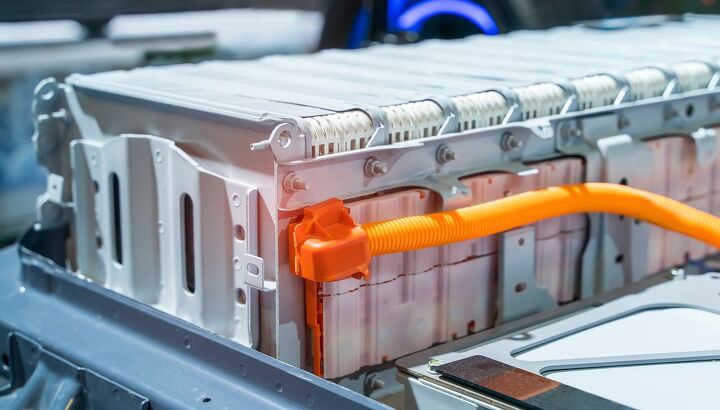
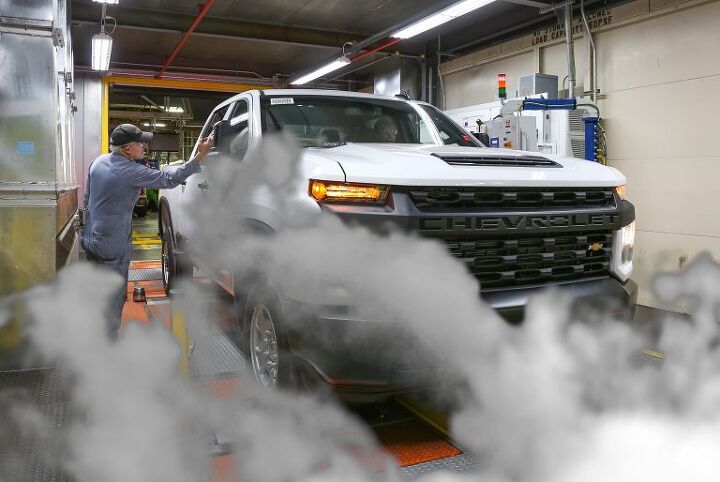
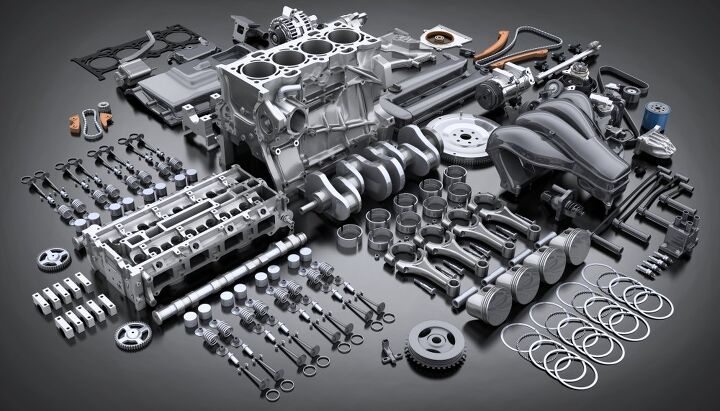





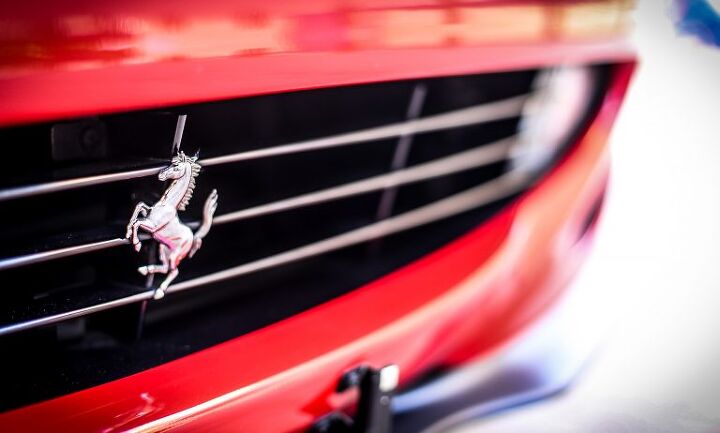


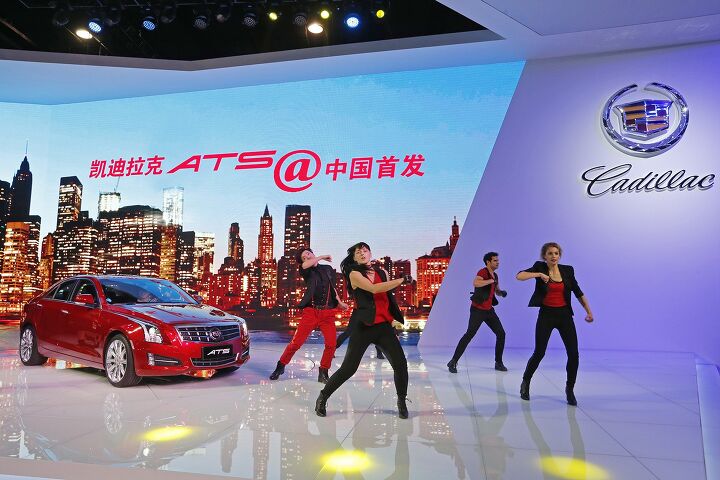





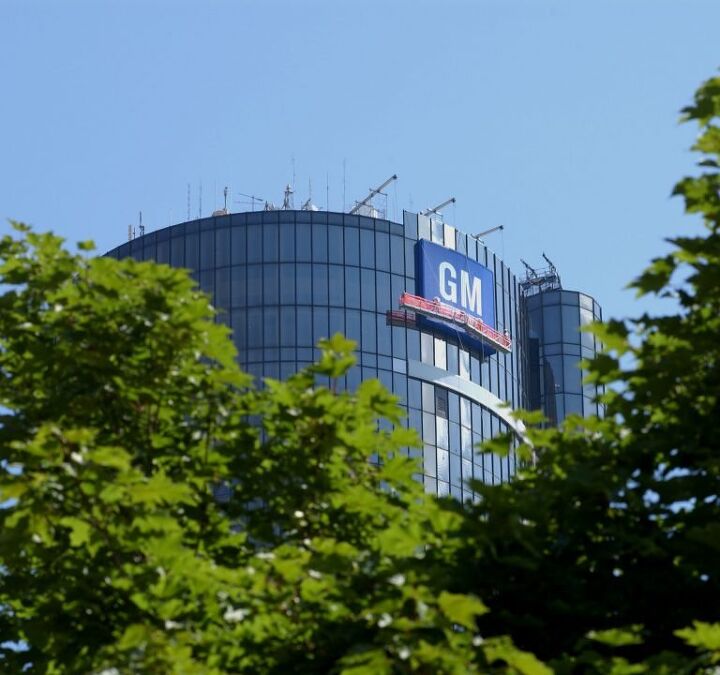

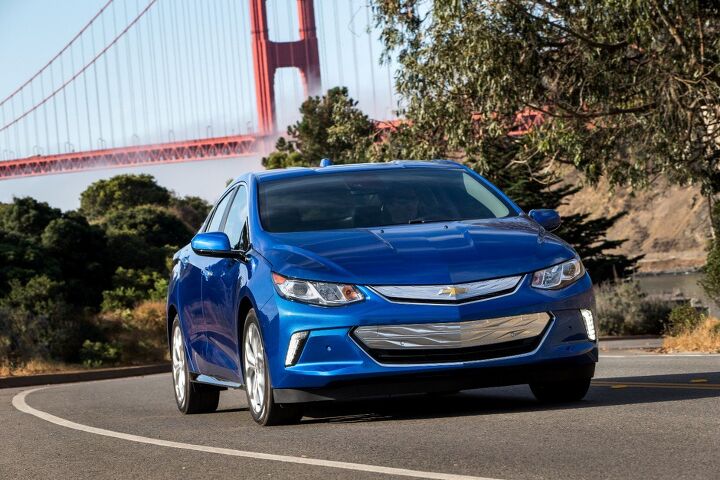

![Ford's Car Cull Decision Spills Over to Michigan Workers [Updated]](https://cdn-fastly.thetruthaboutcars.com/media/2022/07/10/8918158/ford-s-car-cull-decision-spills-over-to-michigan-workers-updated.jpg?size=720x845&nocrop=1)


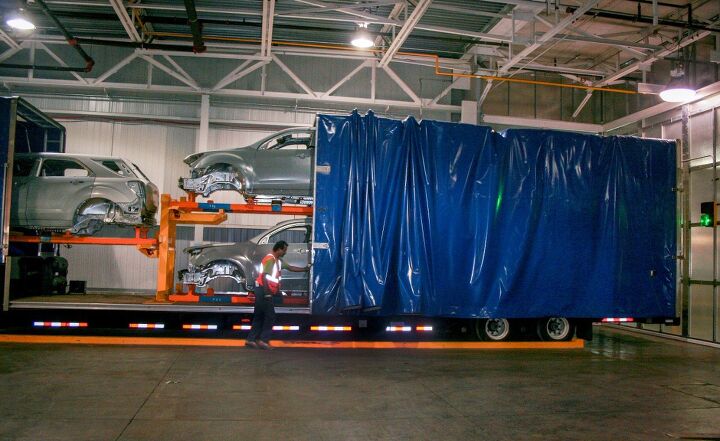


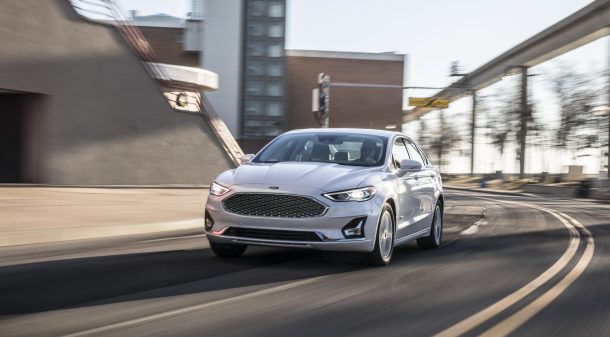
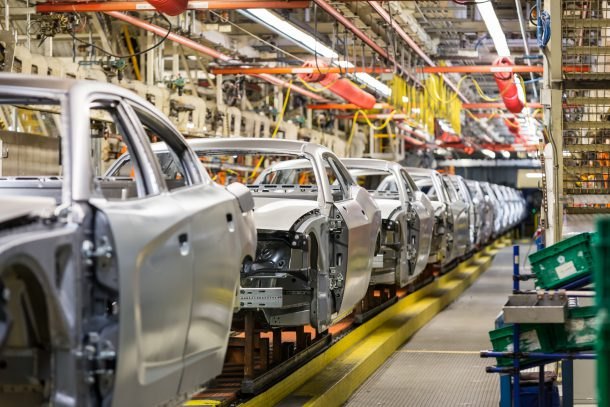







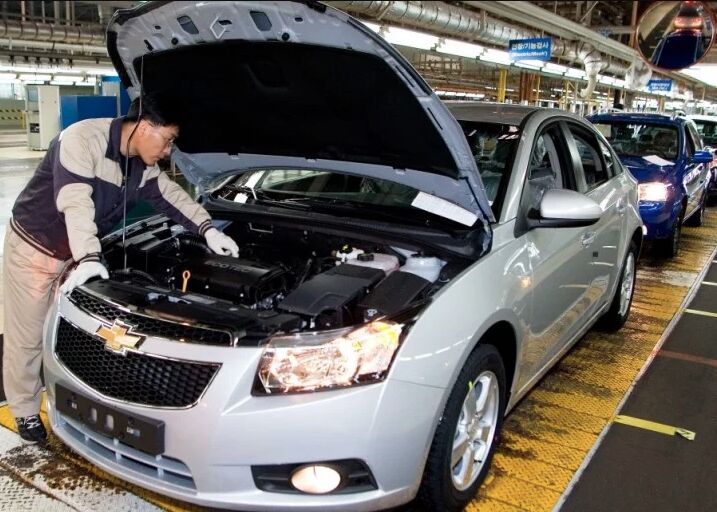



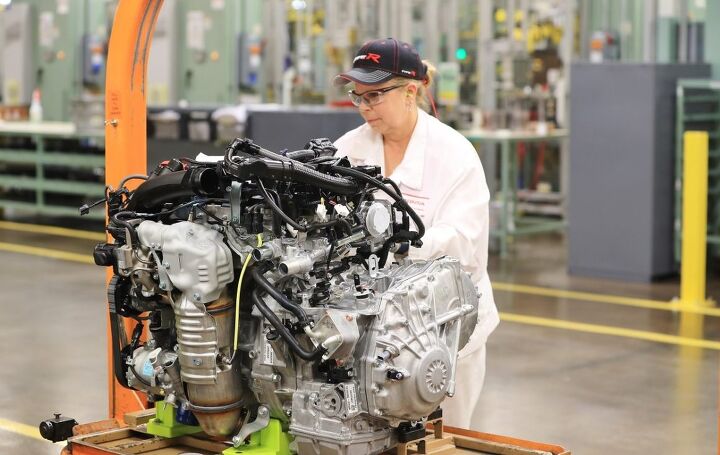

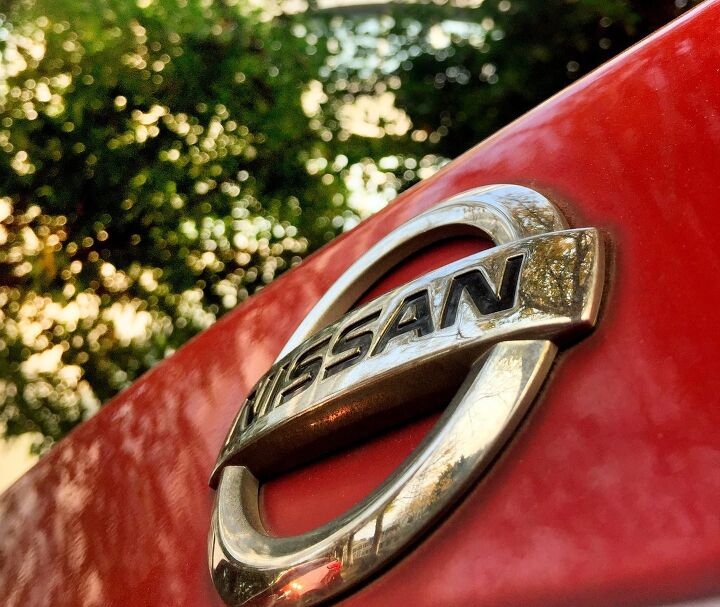

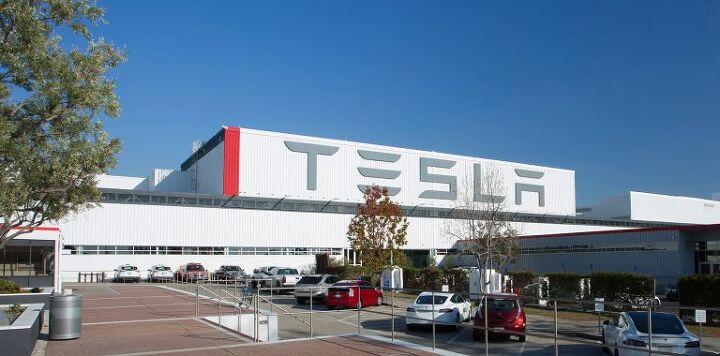
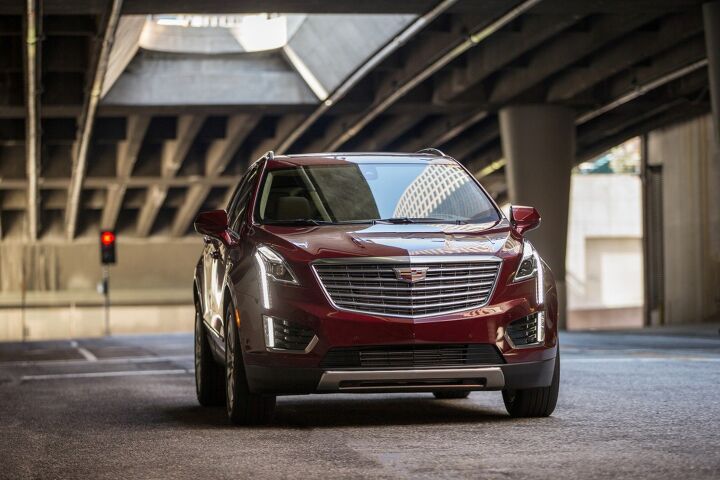

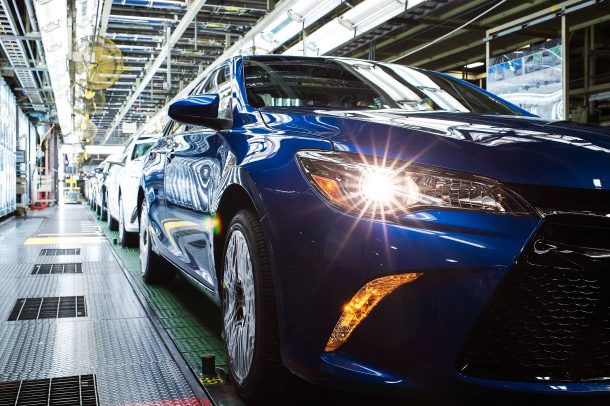

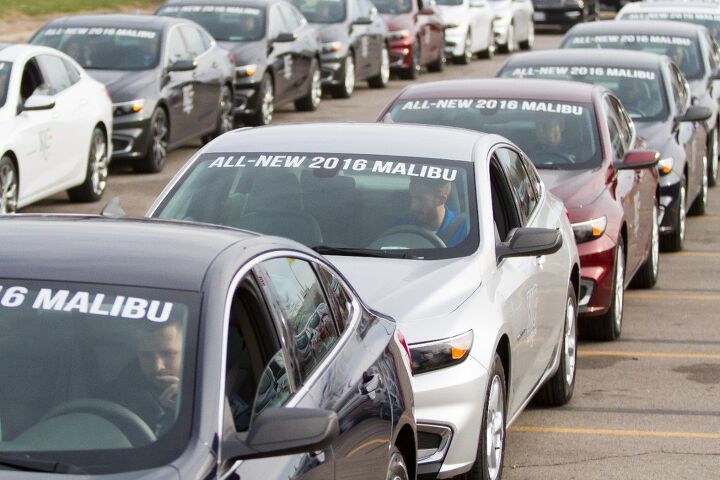

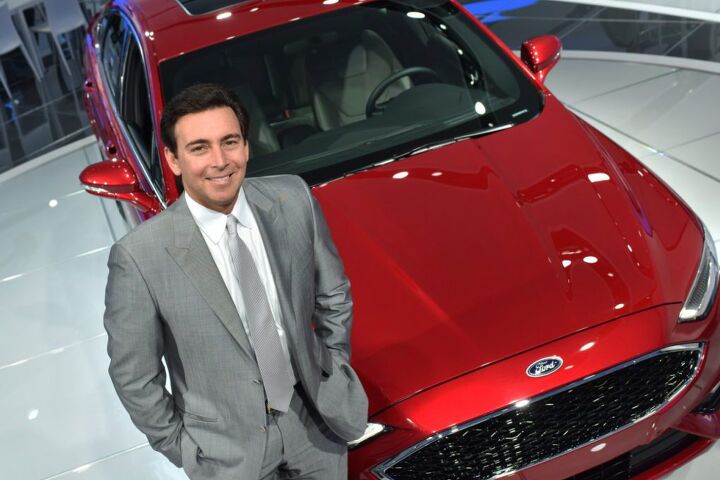
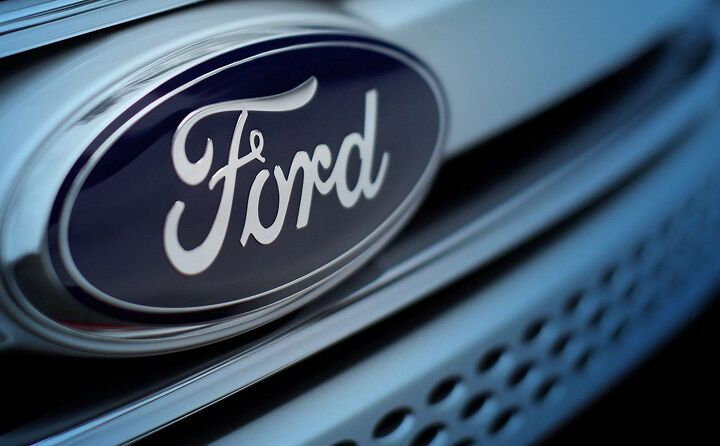

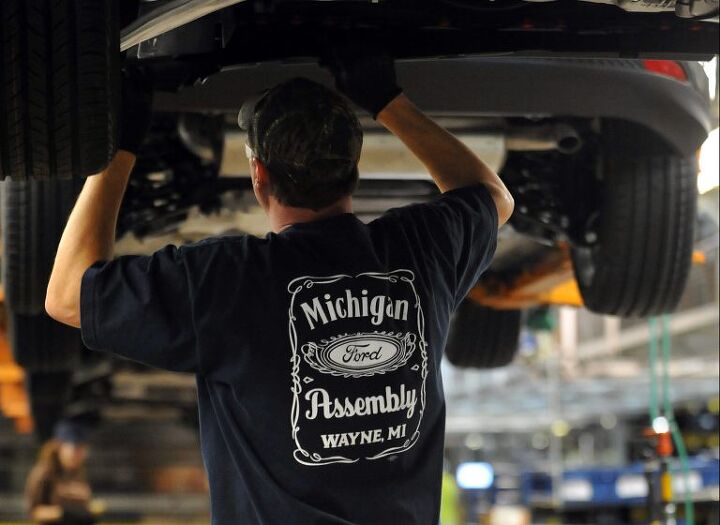













Recent Comments